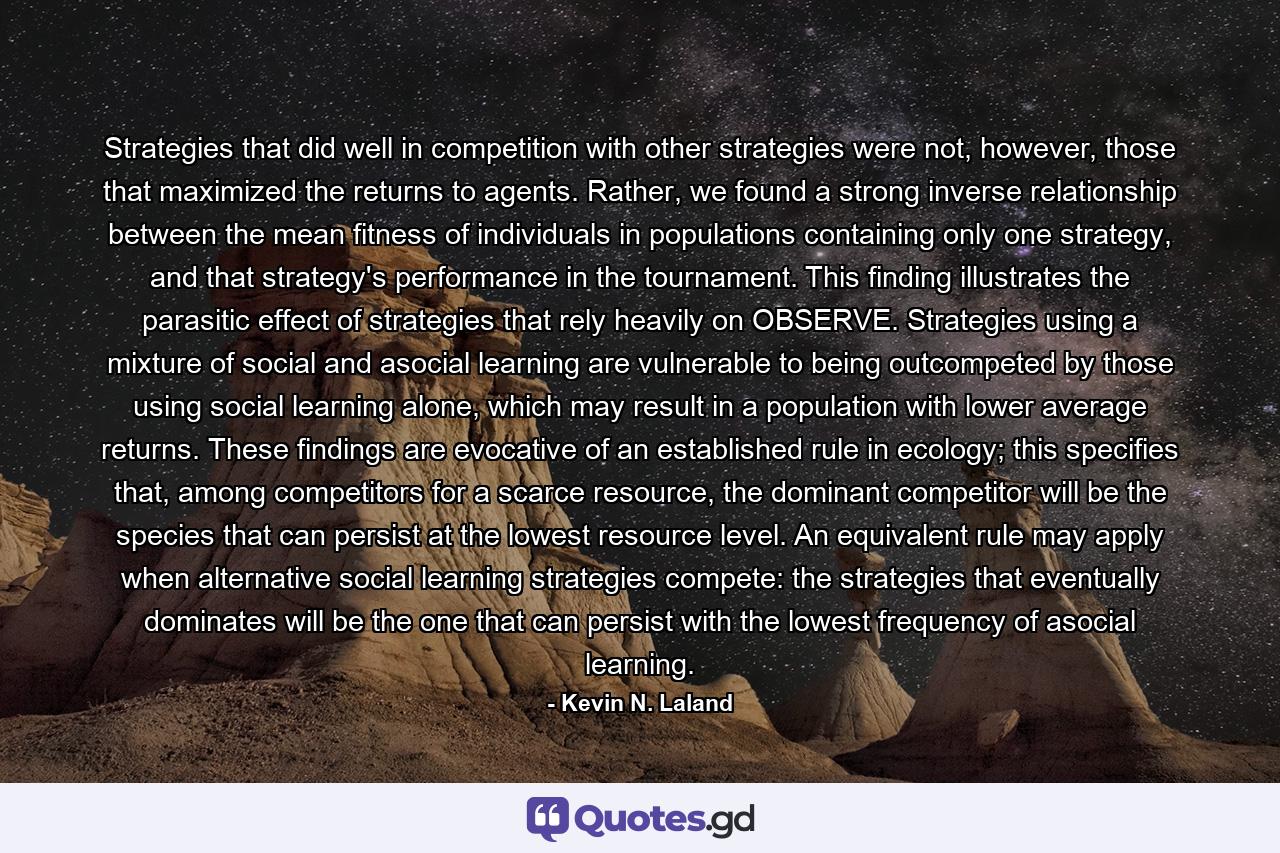Strategies that did well in competition with other strategies were not, however, those that maximized the returns to agents. Rather, we found a strong inverse relationship between the mean fitness of individuals in populations containing only one strategy, and that strategy’s performance in the tournament. This finding illustrates the parasitic effect of strategies that rely heavily on OBSERVE. Strategies using a mixture of social and asocial learning are vulnerable to being outcompeted by those using social learning alone, which may result in a population with lower average returns. These findings are evocative of an established rule in ecology; this specifies that, among competitors for a scarce resource, the dominant competitor will be the species that can persist at the lowest resource level. An equivalent rule may apply when alternative social learning strategies compete: the strategies that eventually dominates will be the one that can persist with the lowest frequency of asocial learning.
